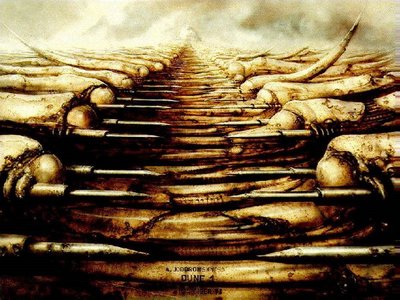As I get older, I find myself more and more attracted to documentaries. I don’t know if this is a function of my own personal proclivities or if it’s that more documentaries are being made or that in the age of the internet, they’re just more accessible than ever. It’s probably some combination of all those factors, but I’ve found myself ranking at least one, sometimes two, documentaries in my top 10s for just about every year. I don’t generally like “activist” documentaries (too much ax grinding to actually be effective), though if you’re Errol Morris, I can make an exception (not sure if you’d consider The Unknown Known an “activist” film, but I’ll most certainly be checking it out at some point) – The Thin Blue Line buys him a permanent exception. I tend to gravitate towards documentaries about professions or activities, personalities famous or unknown. This year has seen a bunch of interesting ones, all lining up in the past couple months (for me, at least). So here are four documentaries that I found worthwhile:
- Jodorowsky’s Dune – I watch a lot of weird movies, so when I say that Alejandro Jodorowsky’s movie El Topo is, without a doubt, the oddest, most disturbing movie I’ve ever seen, that’s saying a lot. You could make a similar argument for his follow up, The Holy Mountain, but once you’ve seen El Topo, you kinda know what you’re in for. After those two cult oddities, Jodorowsky was somehow tapped to direct an adaptation of Frank Herbert’s novel Dune. This documentary tells the tale of that failed but profoundly influential production.
It’s an interesting topic for in-depth exploration (indeed, I was writing about this on the blog way back in 2001), and director Frank Pavich clearly forged all the necessary connections to garner access to all of the copious amounts of pre-production materials, as well as interviews with key collaborators, including Jodorowsky himself. The movie covers Jodorowsky’s early career and how he came to be involved with Dune, then chronicles all of his recruitment efforts and pre-productiion work. The movie bogs down a bit and gets a little repetitive when you hit the recruitment phase, as it’s a similar structure of Jodorowsky meeting with this or that famous artist and convincing him or her to take a chance on his kooky little movie.
That being said, the sheer amount of talent that Jodorowsky managed to pull was staggering. Salvador Dali and Orson Welles were cast in key roles. Pink Floyd was going to do the score. Dan O’Bannon was going to do special effects. Chris Foss, H.R. Giger, and Jean ‘Moebius’ Giraud provided countless sketches, storyboards, and concept art. After the project fell apart, many of the collaborators hooked up in other projects, most notably O’Bannon, Foss, and Giger for Alien and Foss on Star Wars, amongst many other productions. So while Jodorowsky’s Dune was never made, the shadow of its influence spreads far.
The only point of hesitation I have about the documentary is that there are no counterpoints. Everyone points to the collaborators or its influence as evidence that it would have been great, but when I hear Jodorowsky talking about the book and what he wanted for the movie, then look at his earlier work, I hesitate to say whether this thing would be any good. Indeed, while I respect Jodorowsky’s work, I find it hard to believe that it’s as beloved as portrayed in this movie. Indeed, the movie plays it a little coy when it comes to the reasons why the project fell through (In short, few were willing to finance something like this, and I wonder how much of that was Jodorowsky’s reputation versus how ambitious or audatious this specific project was). It’s a little one sided in its praise and it would have been interesting to see someone counter all the hyperbole that was being laid on pretty thick by the folks interviewed. That being said, this was a fascinating documentary and well worth checking out.
- Milius – An interesting look at the famous 70s era USC filmmakers from the unusual perspective of John Milius. A boisterous, larger than life figure, Milius was an outlier in Hollywood. A strident conservative and gun nut who nevertheless managed to get along with (and collaborate with) kooky leftists like Spielberg and Coppola, and he was among the more prolific writers out there in the 70s and early 80s. Lots of entertaining anecdotes about his wacky antics (bringing a gun to a pitch meeting, etc…) His output seemed to decline after Red Dawn, as his right wing ways started to catch up with him. The documentary also covers his somewhat recent stroke and his struggle to regain the power of speech (which must be devastating to a writer). This was a well done, entertaining effort, worth popping in your Netflix Instant queue, even if it won’t change your life or anything.
- Tim’s Vermeer – Utterly fascinating account of one man’s attempt to recreate Johannes Vermeer’s distinctive, photo-realistic method of painting. Directed by Teller (of Penn & Teller fame, the guy who doesn’t talk), this film is mostly portraying inventor Tim Jenison as he attempts to suss out how Vermeer accomplished his paintings with the use of various optics and mirrors, then his painstaking attempt to recreate one painting by hand (the overall process took years, the painting itself took months). I will leave it at that for now, but this is exactly the sort of thing that I look for in a documentary, and will almost certainly be making an appearance on my top 10 of 2014. I may be a bit unusual in this respect, but I still say this is worth seeking out…
- Life Itself – This documentary covers the life of Roger Ebert, and so you know that film nerds like myself would be all over it, and it is indeed a very popular film. Directed by Steve James (whose Hoop Dreams was championed by Ebert back when Documentaries were not as popular as they are now) has made a clear eyed look at Ebert’s life and times, chronicling his successes and his failures, his friendships and feuds, always in a respectful manner. Lots of great anecdotes and stories, including many that I had never heard before, and his relationship with Siskel is particularly interesting. It gets a little more difficult once Ebert’s various health issues start compounding (as it should), but if you’re at all interested in film criticism or Ebert in particular, this is definitely a film to seek out.
And that’s all for now. Hugo awards are being announced late tonight, so stay tuned for reactions and whatnot…


Wow, thanks for this list, I am always on the lookout for good documentaries. I think it would have been fascinating to see Jodorowsky’s version of Dune (and I have to admit that I am one of the seemingly 15 or so people who like Lynch’s version) and I guess this doc is going to be as close to that as we are ever going to get.
By the way, I can’t remember if you had written about them but of the docs I saw recently I quite enjoyed “The Imposter” and “Big River Man”.
My pleasure! Tim’s Vermeer is obviously my favorite of the bunch. Jodo’s Dune is indeed fascinating and the closest you’ll get to his vision. I will note that I think that Lynch’s Dune has its moments (though it’s a bit of a mess overall). I didn’t realize it when posting this, but 3 out of 4 of these movies are about, well, movies. Leave it to movie nerds to watch a lot of movies about other movies.
I had put The Imposter in my queue way back, but have yet to watch it. And now I have a new one in my queue: Big River Man sounds interesting…
If I may add to that, I just watched Bigger Stronger Faster* which I thought was excellent. It’s not really an ‘activist’ documentary, but definitely has a central thesis, which I found intriguing…
I believe I’ve actually seen that one. It’s about bodybuilding and drugs and whatnot, right? I remember enjoying it and would certainly recommend it as well:)